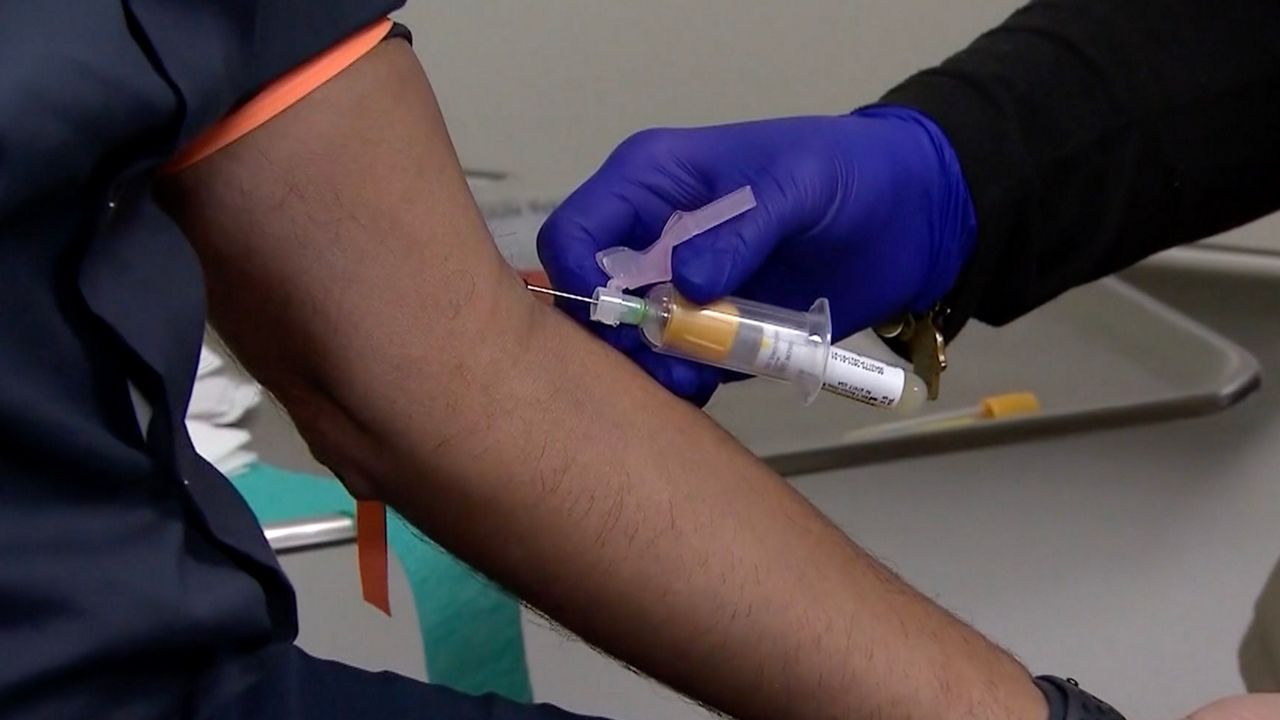CLEVELAND, Ohio — When Michelle was 16 years old, doctors discovered that she was born without a uterus. As a teenager, her hopes to one day as an adult give birth, vanished. She says she never would have imagined that 15 years later she’d have Cole in her arms, a baby boy who she carried and delivered in March of this year.
“I didn't think that it was possible. I thought my mind was playing a trick on me. I was excited. I was overjoyed that I had a baby growing inside of me that I never thought that would be a possibility,” said Michelle, the uterus transplant recipient.
Michelle’s pregnancy was made possible by a uterus transplant, and she became pregnant through in-vitro fertilization. The transplant and birth are part of an ongoing Cleveland Clinic clinical trial.
In 2019, Cleveland Clinic became the first hospital in North America to deliver a baby from a uterus that was transplanted from a deceased donor. Dr. Uma Perni is the physician responsible for conducting the transplant procedure that resulted in Michelle’s pregnancy, delivery, and postpartum care. She says it’s exciting to help give women like Michelle a chance to become a mother.
“For the most part, I mean, her pregnancy went very similar to a routine pregnancy. With the ultrasounds, you could not tell that, you know, this was a transplanted uterus from a deceased donor. Even at the delivery, it just looked like a regular C-section that we do every day,” Dr. Perni said.
Although Michelle’s pregnancy and baby Cole’s birth were picture perfect, the process was not an easy or quick one.
“It all started in 2016, and I was listed in 2017 in the fall, and I didn't receive that phone call that I was a candidate for a perfect transplant until January 2019.”
“First they have to go through the IVF process and make sure that they have embryos for their transplanted uterus, then they get listed and then undergo the transplant when a donor becomes available, then they have to remain on their immunosuppressant or antirejection medications, and followed then eventually by the embryo transfer and pregnancy and delivery, so it is quite a long road for these women,” Dr. Perni said
Michelle says every single step was worth it.
“I wake up every day and he smiles at me. Just to be able to have a child was a dream come true. i never thought that I would be in this spot where I actually have my own,” she said.
According to the Cleveland Clinic, an estimated 1 in 500 women of childbearing age worldwide are affected by the uterine factor infertility — a condition where a woman cannot get pregnant because she either doesn’t have a uterus or her uterus is no longer functioning correctly.
Dr. Perni says the trial was initially approved for ten transplants and eight have been performed so far. Two have not been successful, there have been two live births, and there are four women who currently have working transplants that are in the process of embryo transfers. She says she expects the trial to offer hope to women worldwide who are unable to have a baby due to uterine factor infertility.
“I don't know that it will happen right after our trial, but I think as more centers around the world are able to replicate this and do the same thing and we have more numbers and more data to support the safety and efficacy of this treatment, hopefully it will become an option for some women," she said.









